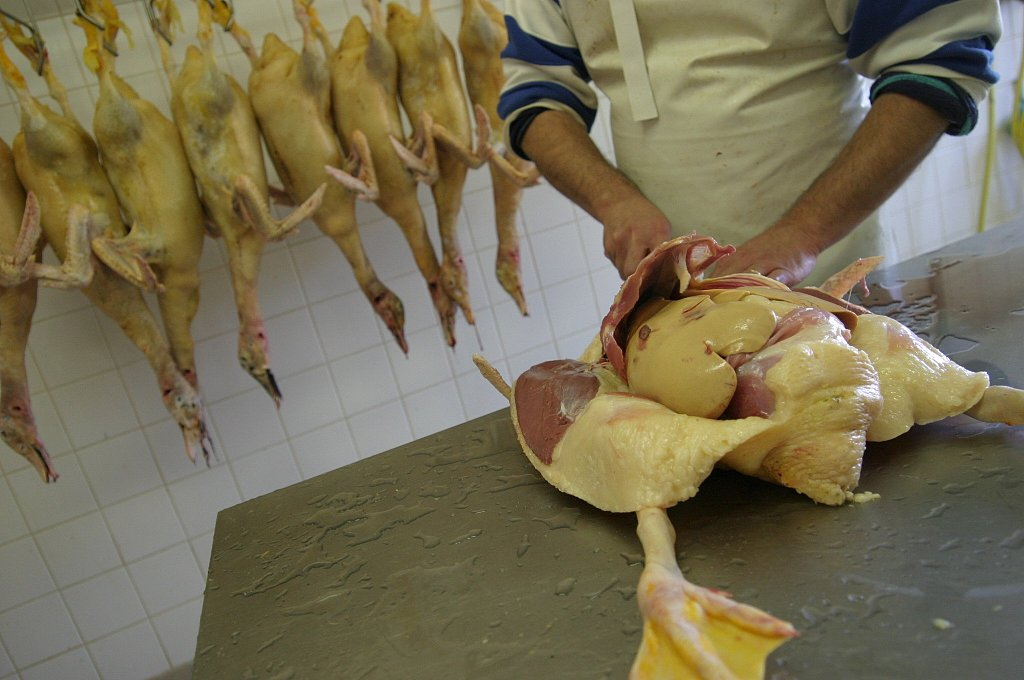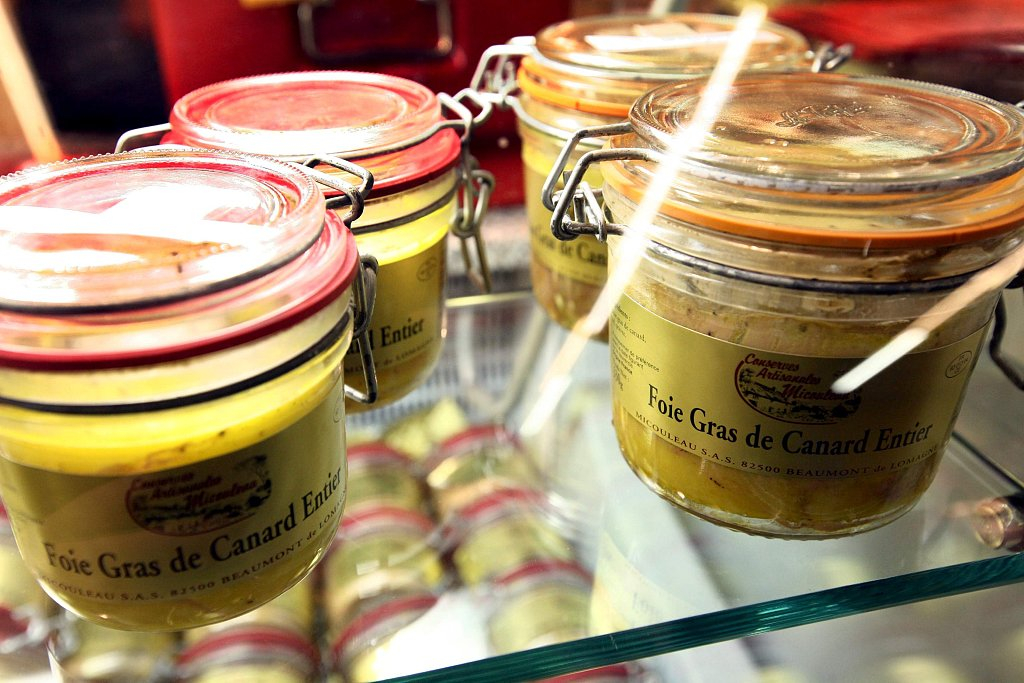

Foie gras has made a name for itself as the pinnacle of fine dining and the prerogative of the well-heeled. Known for its rich buttery flavor and unctuous mouthfeel, gourmets have long sought out the French specialty. But the coveted offering, traditionally unpalatable by animal rights advocates, is increasingly served with a side of controversy.
New York City is currently mulling outlawing foie gras in restaurants and supermarkets. California has already banned the production and sale of the item, which was upheld by the U.S. Supreme Court earlier this year.
Across the pond, similar plans are being hatched. British Environment Minister George Eustice hinted last year that the UK, which prohibits the production of foie gras, could stop importing the delicacy after Brexit, when London breaks free from single market rules. In Denmark, the Socialist People's Party, a parliamentary ally of the government, urged the EU to take a bloc-wide stand against pâté in July. In Ukraine, the country's only foie gras farm is shuttering its doors this month after its parent company deemed operations there "not consistent" with its attitudes on animal welfare.
"These moves are unjustified. They are scientifically unfounded and based on a clear lack of knowledge about the production of foie gras," Euro Foie Gras told CGTN in a statement. The Brussels-based federation represents waterfowl farmers in Belgium, Bulgaria, France, Hungary, and Spain.
"Consuming foie gras should be a personal decision and public authorities should not interfere in this. Banning the sale of the delicacy means withdrawing this freedom of choice from consumers."

Livers of ducks reared for foie gras could swell to up 10 times their original size. /VCG Photo
Problematic process
The meat of the issue lies in how the French specialty comes to be. Gavage is what makes foie gras so appealing to many, while causing others to gag with disgust.
"[The process] involves workers ramming pipes down the throats of geese or male ducks twice each day, pumping up to one kilogram of grain and fat into their stomachs," explained Jason Baker, PETA vice president of international campaigns, to CGTN. Fat deposits gradually build up, swelling the liver to up to 10 times its original size and giving it its characteristic soft bite – and infamy.
"The production of this vile substance is widely viewed as extremely cruel," Baker said, adding "[animals] can't move and their organs become distended and diseased."
It's an unappetizing and depressing depiction – one that foie gras producers contend is also fictional. They dismiss allegations of animal mistreatment, insisting the birds' elastic esophagus "can expand like a snake" and that the process is a naturally occurring phenomenon.
"Migratory birds naturally stock fat in their livers. The fattening of geese and ducks for foie gras production is a mere reproduction of this natural, non-pathological, and totally reversible physiological ability," Euro Foie Gras noted.
Taste of tradition or torture?
The 12-day (or so) deliberate fattening program has spawned a decades-long food fight during which both sides have hurled contradictory scientific findings at each other. It's an emotionally charged dispute, pitting compassion against culinary customs.

U.S. supermarkets like Costco, Target and Whole Foods no longer sell foie gras. /VCG Photo
Foie gras is an ambassador of French gastronomy and an emblem of its culinary culture. Entire regions in the southwest are devoted to rearing geese and ducks for their fatty liver and the product is a staple at Christmas dinners across the country. The French have a voracious appetite for foie gras, consuming 280 grams per capita per year – the most of any country.
In 2006, foie gras was enshrined as part of France's "cultural and gastronomic heritage" and Hungary has labeled its fatty goose liver a "Hungaricum," a designation given to products of cultural significance.
"Foie gras production [is] closely linked to the culinary national identity of the producing countries. It's a delicacy with a strong symbolic connotation: it means heritage, conviviality, sharing, and pleasure," Euro Foie Gras said.
For critics, such a romanticized idea of foie gras is for the birds. "Tradition has never been a justification for cruelty. Foie gras production involves horrific cruelty that future generations will look back on with shame," said PETA's Baker.
Long-simmering tensions over the ethical nature of the luxury item seem to be reaching a boiling point, fueled by a mass awakening to the drawbacks of factory farming and promising advances in the alternative and clean meat industries.

IntegriCulture is growing foie gras from the liver cells of waterfowl. /Photo courtesy of IntegriCulture
Fois gras without the fowl
Consumers are altering their diets as they become more sensitive to the impact of food choices on their health, the planet, and animals. Agritech startups are mushrooming as entrepreneurs trade aprons for lab coats in their quest for foods that are eco-friendly and sustainable.
A Japanese cellular agriculture company is developing foie gras that many say could remove the guilt from the gourmet product. IntegriCulture is growing fatty livers from hepatic cells, effectively removing the birds – and the controversial gavage process – from the equation.
CEO Yuki Hanyu told CGTN that they plan to launch the product in 2021 in limited restaurants before a retail rollout in 2023. Last week, IntegriCulture did a taste test in Tokyo of its cell-based duck foie gras.
Hanyu prefers to focus on the nutritional edge of his product rather than its virtues. "Moral and ethical decisions should be up to the individuals and organizations which are not bound by profitability. The industry should just provide options," he said. "The advantages of cell-based foie gras includes tuning fat content for better taste and health benefits."
The endeavors of Hanyu and his ilk have received the backing of environmentalists and activists. The lab-grown meat movement "has become a burgeoning industry that has the potential to save animals' lives, prevent untold suffering, safeguard the environment, and feed humans around the world," Baker noted.
But would defenders of the disputable dish give it a chance? "Foie gras is based on farmers' know-how. Chemistry is far from a local and authentic mode of production," Euro Foie Gras stated – and so the debate continues.

Copyright © 2018 CGTN. Beijing ICP prepared NO.16065310-3
Copyright © 2018 CGTN. Beijing ICP prepared NO.16065310-3